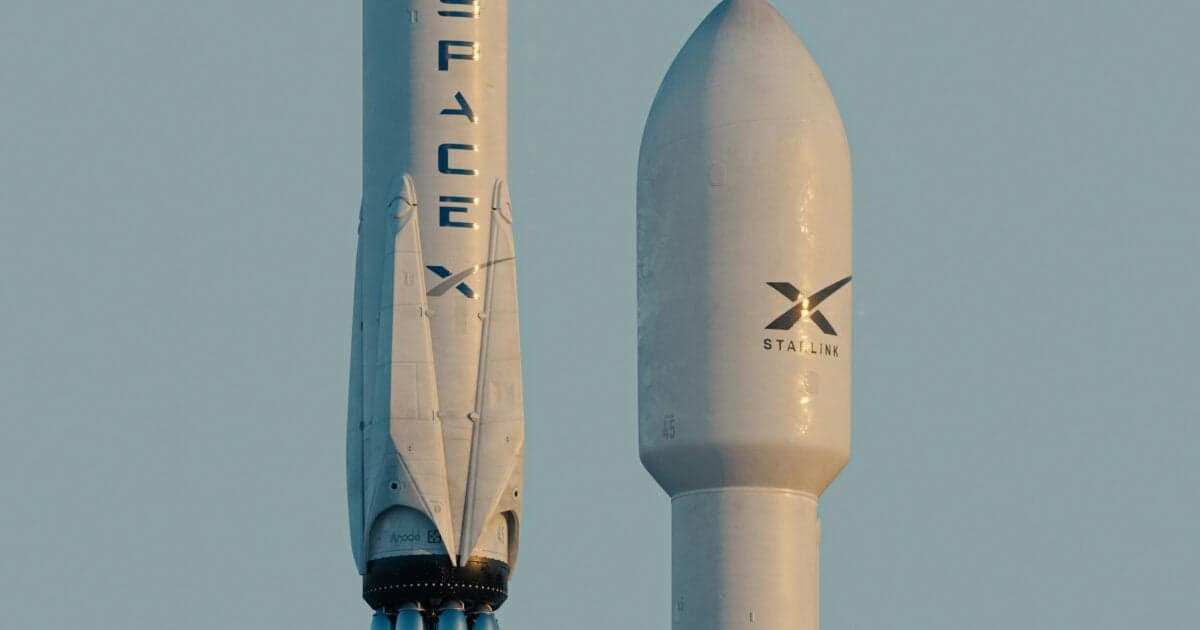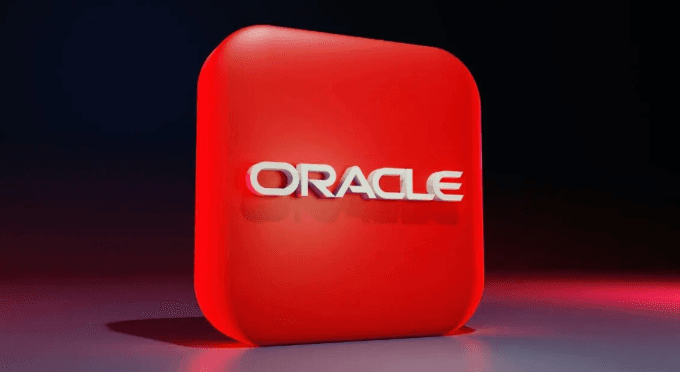How Does TrumpRx Impact Pfizer Stock's Future?


Pharma giant Pfizer (PFE) cut a deal with President Donald Trump to dodge tariffs – and it may reshape drug pricing forever.
I'm talking about TrumpRx. And no, this isn't another of Trump's flashy branding efforts like Trump Steaks or Trump Sneakers. This is a real plan to sell medication directly to American consumers. And Pfizer is the first company on board.
TrumpRx is a partnership between Pfizer and the Trump administration to offer discounted drugs through a government-operated website called TrumpRx.gov. The goal is to align U.S. drug prices with those in other developed countries, where many common medications often cost far less.
Trump noted that this partnership with Pfizer is only the first. Deals with other drug companies are being ironed out. If TrumpRx succeeds, Americans – including those on Medicaid – could see lower prescription costs. But the deal does not touch prices for employers, private insurers, or Medicare... the main sources of Pfizer's revenue.
Of course, with a deal like this comes many ripples... for the market, for consumers, and for the pharmaceutical industry. We could be looking at reshaped global drug pricing and disrupted pharma business models.
But what does TrumpRx mean for investors, Pfizer stock, American consumers, and the pharma sector as a whole?
What Is TrumpRx?
TrumpRx is a government-run online portal where Americans can buy prescription drugs at "Most Favored Nation" ("MFN") pricing – essentially the lowest price paid in other advanced economies. Expected to launch sometime in early 2026, TrumpRx will take shoppers to pharmaceutical companies' direct-to-consumer websites to fulfill orders.
According to Pfizer's press release, its medications on TrumpRx.gov will be, on average, 50% cheaper than current prices, with some drugs discounted up to 85%. But how those numbers are calculated has not been disclosed. The press release stated that "specific terms of the agreement remain confidential."
For Trump, this is a big win – cheaper drugs, political headlines, and renewed pressure on drugmakers to bring manufacturing back to U.S. soil (more on this later). For Pfizer, it gets a little more complicated.
The Pfizer Deal That Rocked Pharma
Pfizer repeatedly stressed that its participation in this agreement was "voluntary." But the reality is that Trump threatened to impose 100% import tariffs on drugs not manufactured in the U.S.
By striking this deal, Pfizer secured a three-year exemption from those tariffs... contingent on American investment commitments. That alone will save Pfizer an undisclosed – but substantial – amount of cash.
But the concessions Pfizer made to forge this deal will undoubtedly shake the entire pharma industry. Especially its agreement to adopt MFN pricing... which is undesirable for drug companies. Here's why...
- MFN pricing cuts into revenue dedicated to research and development ("R&D"), which could be slashed drastically. Reduced R&D investment directly impacts ventures such as creating therapies for rare diseases. A 2021 study determined that MFN pricing could cut private research spending by up to 60% over the next 18 years. The result could be more than 340 fewer drugs reaching the market.
- Less innovation and fewer new medications from drug companies impact their revenue, which affects their share prices. More broadly, MFN pricing for American drugs could lead to an increase in drug prices for other countries to compensate for the low U.S. prices.
- New drug launches could be delayed in countries with lower prices to avoid a trigger in MFN price cuts in America.
Put simply, Pfizer's MFN pricing could be great for a segment of American consumers, but potentially detrimental to the pharma sector in the long term.
Pfizer wasn't the only player in the pharma industry to concede, however. Facing increasing threats from the Trump administration to "voluntarily" adopt MFN pricing, the Pharmaceutical Research and Manufacturers of America (PhRMA) – the industry's largest lobby – agreed to invest $500 billion in American manufacturing over the next 10 years. PhRMA also launched a new website offering patients discounted drugs.
But PhRMA didn't go as far as Pfizer... it refused to match MFN prices.
Market reaction was swift. Pfizer's stock jumped around 14% in two days after the tariff relief was announced. What we don't yet know is whether the tariff avoidance is enough to satisfy investors long term. For now, it is... but drug companies' bottom lines matter most.
How Much Will TrumpRx Impact Pfizer's Revenue?
Pfizer's steep price cuts may not impact its bottom line as much as it would appear.
The scope of Pfizer's discounts is quite limited. A primary focus on this deal is the price cuts for Medicaid and uninsured patients - the latter being the biggest beneficiaries of TrumpRx. But this represents a small percentage of their overall revenue.
Medicaid already receives significant discounts from drug companies. And those discounts lower the Medicaid drug prices to numbers that are on par with MFN pricing. That means Medicaid patients don't stand to benefit much, if at all, from TrumpRx.
How these steep discounts impact Pfizer's flagship drugs – such as Eliquis, Ibrance, and Paxlovid – remains to be seen. Sure, there will be some lost revenue on sales of each Pfizer drug sold through TrumpRx. But forgoing tariffs is much more favorable to Pfizer and its bottom line.
Right now, that's a big win for Pfizer.
The Ripple Effect Across Pharma
Other drugmakers – Merck (MRK), GSK (GSK), Johnson & Johnson (JNJ), AbbVie (ABBV), Eli Lilly (LLY), and others – now face the same choice: sign their own TrumpRX deals or risk crippling tariffs and customer losses.
As with any deal, there will be winners and losers in the wake of the Pfizer-TrumpRx agreement.
Losers
- Pharmacy Benefit Managers ("PBMs"): PBMs are essentially middlemen in the pharma supply chain. They make their money – and a lot of it – by not only getting rebates from drug companies, but by paying a low price to drugmakers for their products and then charging health plans far more than what they paid. With a direct-to-consumer sales model, the PBM role is eliminated... one of the goals of TrumpRx. PBMs like Express Scripts, OptumRx, and Caremark profit by negotiating rebates and marking up prices. TrumpRx bypasses them entirely.
- Health Insurers: Many health care companies own PBMs. UnitedHealth (UNH) owns OptumRx, Cigna (CI) owns Express Scripts, and CVS Health (CVS) owns Caremark. That's a lot of potential lost revenue. Insurers also lose significant negotiating leverage through MFN pricing, as well as any real incentive for drug companies to offer rebates or deep discounts to certain health insurers. After all, an MFN model would force them to offer the same low price to all payers.
- Drug companies that don't cut a deal: Companies that do not participate in these deals will face 100% tariffs and lose market share to companies offering TrumpRx prices. Of course, this will ultimately affect revenue.
Winners
- Pfizer and other pharmaceutical companies: With their TrumpRx deal, Pfizer gains a three-year exemption from tariffs on drug imports. The significance of that benefit can't be overstated. Plus, because this deal limits price concessions to Medicaid and discounted direct-to-consumer drug sales, the impact on Pfizer's revenue is very manageable. Other drugmakers are expected to follow Pfizer's lead.
- President Trump and his administration: This is a clear public relations win for Trump. While TrumpRx will probably only benefit a small percentage of American consumers (primarily the uninsured), the ability to generate headlines like "Trump Wins Lower Drug Costs for Americans" could give his approval ratings a boost and buy some goodwill with the public.
- Some American patients: Again, TrumpRx won't impact most Americans with health insurance. But cash-paying uninsured consumers will pay lower prices based on the new MFN model. However, it remains to be seen how broad the drug selection on TrumpRx.gov is and how much of an actual discount consumers will receive.
- Generic drugmakers: Generic drugs comprise about 90% of all prescriptions in America. Generic drugmakers are also completely exempt from Trump's 100% pharmaceutical tariffs. Generic drug companies' primary competition – brand-name drugmakers – are not exempt. That means their competitors are now forced to adopt the MFN pricing model, while the generic drugmakers don't. That's a big win. Not to mention, even the "deeply discounted" prices offered through TrumpRx may still be more expensive than a generic prescription.
Key Risks to Monitor for Pfizer Stock Investors
Though Pfizer stands to win the TrumpRx deal in the long run, there are some risks investors should consider.
For one, will patients actually use TrumpRx if they already have health insurance co-pays for their prescriptions? It's highly doubtful. The program is aimed at the uninsured. Insured Americans – over 90% of the population – will likely pay lower prices on prescription drugs through their health plans, even with co-pays and deductibles, than if they were to pay cash through TrumpRx. Plus, it is unclear whether direct cash payments to TrumpRx will even count toward someone's deductible.
Expect delays on the rollout of TrumpRx as well. Lawsuits from pharma companies and lobbies – particularly focused on the MFN mandate – will inevitably push back the website's launch.
This week's government shutdown doesn't help matters, nor do the many undisclosed details of the Pfizer-White House deal.
And with the 2026 midterms, any potential change in House or Senate leadership could derail TrumpRx before it ever gets a chance to make an impact.
For current and would-be Pfizer investors, these developments are worth monitoring closely.
Investor Action Plan: Can Pfizer Stock Hold Up?
Let's examine the short-, intermediate-, and long-term forecasts for Pfizer stock.
Short term
Pfizer was a clear short-term winner in the TrumpRx agreement. First and foremost, the drugmaker avoided the potentially devastating 100% import tariff on pharmaceuticals that President Trump was threatening.
Additionally, while the idea of moving several of its drugs to a MFN pricing model is daunting, the reality is that TrumpRx won't meaningfully impact Pfizer's revenue in the near term. Most of its U.S. sales still flow through private insurers and Medicare, which aren't included in the deal.
The market recognized this immediately. Pfizer's stock saw a double-digit pop in the immediate aftermath of the announcement. Investors jumped on the ideas of tariff relief and the optics of Pfizer making its medications more affordable for Americans.
Intermediate term
The bigger question is margins. Even if TrumpRX touches only a small section of Pfizer's total sales, any large-scale commitment of MFN pricing could hurt profitability.
If that happens, Pfizer will have to offset the hit somewhere, and R&D is usually among the first on the chopping block. But Pfizer – and all big pharma businesses – need sustained R&D to innovate and deliver new products, thus generating more revenue. So a cut in R&D could create longer-term problems.
So the key to watch in the intermediate term is whether discounted TrumpRx sales volumes are large enough to noticeably compress margins – and whether management trims spending in response.
Long term
Will TrumpRx stand the test of time? Or will it fizzle out by 2027?
Much of that depends on whether American consumers spend enough through TrumpRx.gov to make it a worthwhile venture. Our guess is they won't, since the program is geared toward what's essentially less than 10% of the country's population. That means the program's impact could be narrow. But even with limited adoption, the White House can use tariff threats to keep Pfizer – and potentially other competitors – in compliance.
The 2026 midterm elections will also have plenty to say about TrumpRx. If Democrats retake control of one or both chambers of Congress, you can bet the program will be firmly in their crosshairs. If Republicans maintain leadership, the program could survive – though its ultimate success will still depend on customer uptake.
Politics aside, is Pfizer stock worth the investment? Our proprietary Stansberry Score offers a resounding yes.
Pfizer is a straight-A performer for us, with high marks in financials, capital efficiency, and valuation... and it has momentum on its side. We think Pfizer trades well below its valuation, which peaked during COVID-19 but has rebounded nicely.
Its dividend yield of nearly 7% is markedly higher than both the S&P 500 average and pharmaceutical stock averages. With a robust operating margin around 26%, a healthy net income margin near 17%, and over $12 billion in free cash flow, Pfizer has shown consistent profitability through the midway point of 2025.
Of course, every company has its risks. A few things to keep an eye on include:
- Several of Pfizer's top-selling drugs are losing their patents in the next few years (Ibrance in 2027, Eliquis and Vyndaqel in 2028). Generic forms of these drugs could impact Pfizer's revenue down the road.
- While deep discounts on some Pfizer drugs through TrumpRx probably won't put many dents in its armor, a potential change in drug pricing regulations could.
- As we mentioned, keep an eye on Pfizer's margins over the next year or so. If they become compressed, R&D may be the victim... as might future drugs and innovations.
The next several months should be an interesting – and pivotal – time for Pfizer, its fellow drugmakers, and investors, thanks to TrumpRx.
Regards,
David Engle
P.S. Pfizer's deal with the White House is just the beginning. A strange day is coming to America — one that could blindside millions of investors. According to our research, you could lose up to 40% of your wealth if you aren't prepared.
That's why Stansberry Research has released a brand-new presentation explaining the hidden forces reshaping our markets... and the simple steps you can take right now to protect — and even grow — your portfolio.
Don't wait until it's too late. Get all the details right here.




